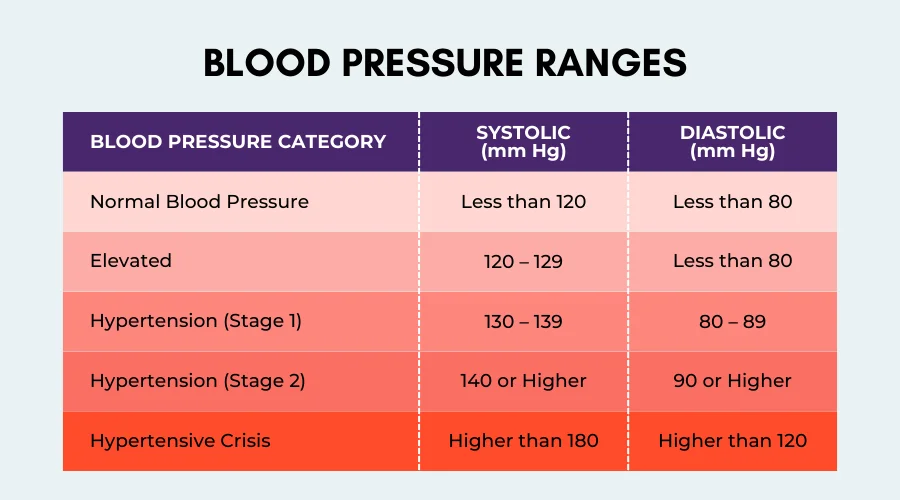What Is Hypertension?
- Updated on: Aug 6, 2024
- 2 min Read
- Published on Sep 27, 2019

Definition of hypertension
Blood flows through blood vessels with a certain pressure. In a healthy human, the pressure with which the blood flows is normal but if the pressure increases, it can lead to a chronic condition called ‘hypertension’. Thus, hypertension is the severe condition in which the blood flows at a pressure much higher than the normal limit.
Hypertension is also referred to as ‘high blood pressure’ and sometimes also known as ‘silent killer’. Normally, blood pressure rises beyond the normal limit when a person does any physical activity such as exercise, playing sports, etc. Such rise in pressure gradually becomes normal with time. But if the pressure remains high for a very long time then it becomes very important for the person to consult a doctor.
What are systolic and diastolic blood pressures?
High blood pressure is generally measured as systolic pressure and diastolic pressure. The systolic pressure is the pressure with which the blood flows across the blood vessels when the heart is in its contracting state and its normal limit is 120mmHg.
The diastolic pressure is the pressure with which the blood is filled in the heart when it is in its relaxed phase and its normal limit is 90mmHg.
Types of hypertension
According to the American Heart Association (AHA), hypertension is classified into following categories:
Prehypertension
Prehypertension is the condition in which slight increase in both the systolic and diastolic pressure is observed. The systolic pressure limit for prehypertension is between 120mmHg and 139mmHg and for diastolic pressure the limit is between 80mmHg to 89mmHg.
Stage 1 Hypertension
In this stage, the systolic pressure ranges from 130mmHg to 139mmHg and the diastolic pressure ranges from 80mmHg to 89mmHg.
Stage2 Hypertension
In this stage, the systolic pressure reaches to 140mmHg or higher and diastolic pressure reaches 90mmHg or higher.
Hypertensive crisis
Hypertensive crisis is the condition in which the systolic pressure is higher than 180mmHg and diastolic pressure is higher than 120mmHg.

Fast facts about hypertension
- Almost all people experiences high blood pressure in their lifetime.
- In the United States, 1 in every 4 people suffers from hypertension.
- Women and men equally suffer from hypertension. However, in case of younger people, men tend to suffer more from high blood pressure than women.
- According to the reports published by World Health Organization (WHO), nearly 7.5 million deaths are caused due to high blood pressure. This is roughly 12.8% of total number of deaths caused due to hypertension.
- The high blood pressure not only damages the blood vessels but also leads to severe complicated conditions of organs such as heart, kidney, etc.
- Although, blood pressure increases gradually with the age but due to changing lifestyle, children may also suffer from it.
- High blood pressure does not usually show any symptoms but it in some cases, a patient might suffer from severe headache, constant sweating, etc. Read more about the symptoms of hypertension.
- There is no cure for hypertension but it can be controlled by following certain health regimens and monitoring health constantly.












